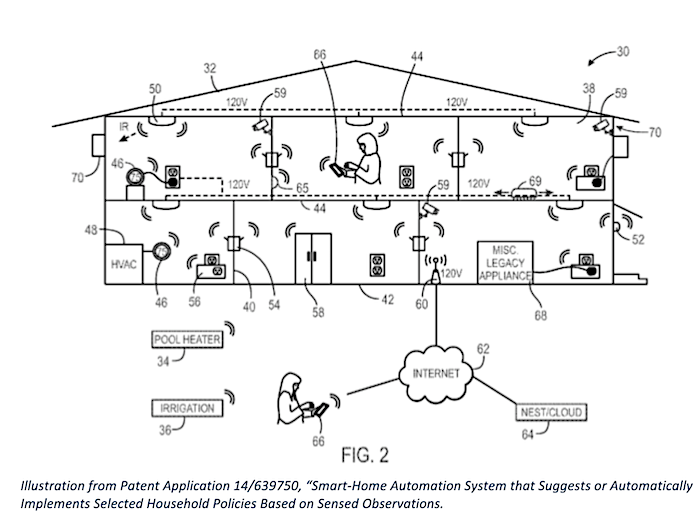A study conducted last year by the US based organisation Consumer Watchdog found that Google and Alexa have patented a range of eavesdropping functions associated with their smart speakers.
While the two companies file hundreds of patents each year and often do not take them to market, the patents reveal some of the thinking from Google and Amazon about how they might monetise the new smart speaker technology using data heard in houses and offices where smart speakers are present.
radioinfo examines the report.
Meanwhile, HT&E chief executive Ciaran Davis told the Sydney Morning Herald this week that smart home technologies like Google Home and Amazon Alexa will help drive a renaissance for audio content and will soon see advertisements targeted to individual listeners, but he also warned radio broadcast companies to be careful to respect users privacy.
According to Consumer Watchdog’s research of US Patent documents, Amazon and Google have filed patent applications for a number of technologies that would “dramatically expand surveillance of consumers’ private lives.”
The technologies detailed in the patent applications include:
- A system for deriving sentiments and behaviors from ambient speech, even when a user has not addressed the device with its “wakeword.”
In 2014, as Amazon was preparing to roll out its Echo smart speaker, the company patented an algorithm that could listen to human speech, including phone conversations, for statements of interest such as “I love skiing.” The algorithm would then process the statements into key words that could be used to target advertising.
The patent describes transmitting the keywords to Amazon servers as text, which could allow the company to spy on conversations while technically keeping its promise to only store and analyze audio recordings that a user intends to share.
- Multiple systems for identifying speakers in a conversation and building interest profiles for each one.
Both Google and Amazon offer users the option of creating acoustic “voice profiles” for voice – activated smart devices in their homes. These profiles can help the devices tailor services to the person speaking.
Patents show that both Amazon and Google could also use voice profiles to associate behaviors with individual members of the household, in order to better target ads.

- A method for inferring users’ showering habits and targeting advertising based on that and other data
Dozens of patent applications for Google’s smart home devices detail scenarios in which Google may share data from smart home devices with third parties, including businesses, who can then use the data to make inferences about users’ sleeping, cooking, entertainment, and showering schedules.
These inferences, Google says, “may help third – parties benefit consumers by providing them with interesting information, products and services as well as with providing them with targeted advertisements.”
- A system for recommending products based on furnishings observed by a smart home security camera.
A patent application describes how Google could use video feeds from smart devices to determine users’ behaviors and characteristics, including “gender, age, fashion-taste, style, mood, known languages, preferred activities, and so forth.”
The patent application describes smart devices that target advertisements based on the title of the book by a user’s bedside, the presence of a guitar or basketball in the room, and the face of a famous actor on a user’s t-shirt.

A range of other patents show more uses of integrated smart speaker monitoring with smart home devices such as cameras, lights and door locks, which can monitor your movements.
When users set up a new Google Home, they must click a button to accept Google’s Terms of Service and Privacy Policy. Those documents give Google broad license to use any data that passes through its system to profile and target ads to users.
According to the research, digital assistants and smart home devices allow companies like Google and Amazon access to the one place where users are likely to spend time disconnected from their devices: home. Access to this data can flesh out Google and Amazon’s profiles of their users in order to help them more accurately server targeted ads.
Google and Alexa are on record as saying they will not compromise user privacy.
The full Consumer Watchdog report is here.


